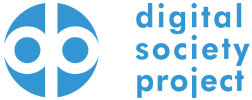The Digital Society Project was founded in 2018 with the goal of analyzing the complex effects of Internet and social media on the different layers of society. The main activities of the DSP project are:
- The production of the Digital Society Surveys. Our survey of V-Dem experts consists of 35 questions, measuring a wide variety of aspects of the Internet’s intersection with politics around the world. It covers 179 countries from 2000 to 2021. DSP’s in-house survey will augment this work by recruiting experts in cybersecurity, social media, online regulation, and related fields to answer a new set of questions about internet regulations and politics.
- The collection and dissemination of data on electoral candidates’ social media accounts and biographical information for a select set of countries. We expect to release our first cross-national candidates dataset in spring of 2023.
- Research. We are only just starting to process the enormous amount of data that we collect. The main question that drives our research interests is how has the massive shift in access to digital media affected political behavior? Have the internet and social media helped citizens to organize themselves to hold governments more accountable, reach across past previous divides, and stimulate discussions? Or is the opposite true: has the internet created stronger polarization among groups, and given ill-minded governments a new, effective, way to control us, and target other states?
- Research dissemination. We are committed to disseminating the results from our research and data collection to both academic and policy audiences. As part of our activities, we publish policy briefs, reports and journal articles.
Funding & Support
The Varieties of Democracy Institute (V-Dem) provided the use of its infrastructure for this data collection project. The V-Dem data team processed this survey using the standard V-Dem measurement modeling and quality control processes, using the V-Dem Institute infrastructure for collection and aggregating expert-based data on democracy, reaching out to a network of over 3,200 scholars from more than 180 countries.
In addition, the project received support from Facebook to cover the costs of initial data collection. The National Science Foundation provided support (Grant No. SES-1423944) for the development of the methodological tools upon which we rely.
The NSF also recently approved an award (SES-2121851, SES-2121852, SES-2121853) that will fund the expansion of our expert pool and survey instruments to better collect technical data about cyber-security and related issues. Finally, Twitter supports our electoral candidate data collection efforts.
Data Security
Regional managers can securely transmit potential participant identifiers to our project coordinators either by using the Signal secure messaging app or by emailing files encrypted to the coordinators’ PGP keys, listed in their profiles. All coordinator keys are signed by DSP’s own PGP key (fingerprint 5A90 92EA 5E9A 44BD 04C2 112D 3F0D 8E60 FE44 F427).
